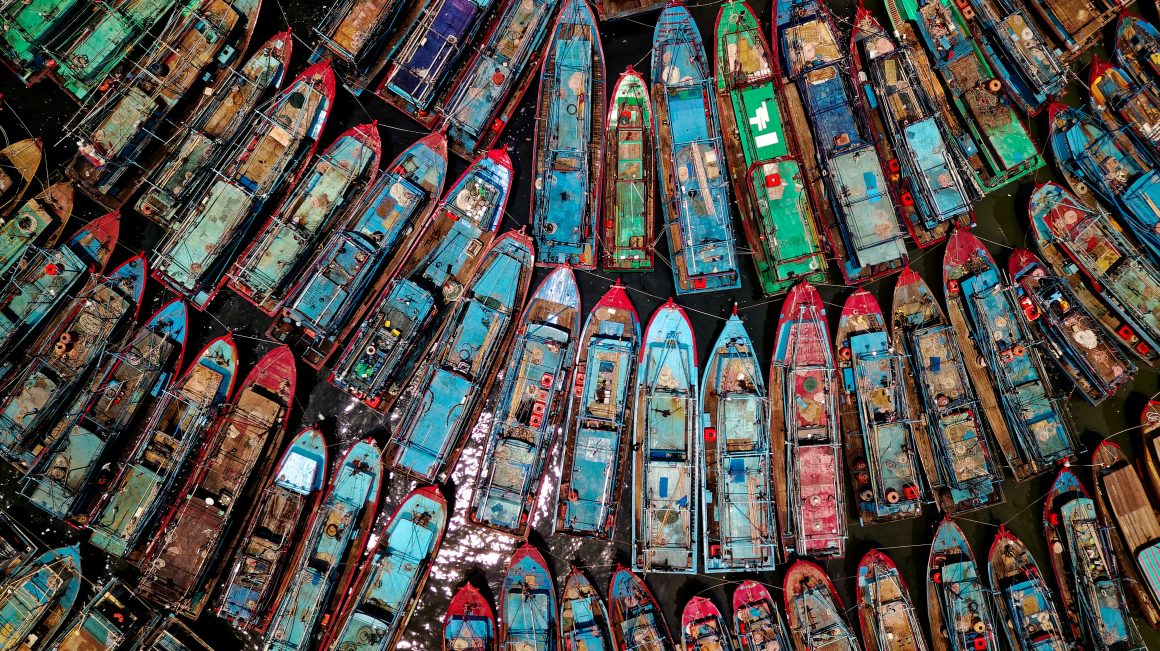Over the weekend of 28 January 2022, Russia moved blood supplies close to its border with Ukraine, where tens of thousands of Russian troops have been amassing, further adding to US concern of the imminency of invasion. When stored at 6ºC, donated blood can last up to approximately six weeks. The clock is ticking as the world awaits Russia’s next move with bated breath, to what could transpire into full-blown warfare.
However, for some waiting is not an option. Last summer, a group of Irish fishermen made headlines during a protest against the Brexit trading deal struck between the UK and the EU, in which Ireland would lose out on about 15% of its fishing quota share by 2026. In response, the group of fishermen, led by Patrick Murphy, Chief Executive Officer at Irish South and West Fish Producers Organisation, organised a flotilla of 100 trawlers to sail up to Dublin in protest of the new EU quotas. The same group of fishermen have recently returned to the spotlight, turning outwards, and confronting the might of the Russian Navy head-on.
Originally planned to begin on Thursday, 3 February 2022, Russia was to conduct naval exercises about 240 kilometres off the southwestern coast of Ireland. Fishing groups, including the Irish South and West Fish Producers Organisation, raised the concern that these naval exercises would harm the local marine life and thereby jeopardize the livelihoods of those in Ireland’s fishing communities. In response, the fishermen promised to sail their trawlers out amongst the Russian warships and continue fishing regardless of any ongoing naval drills, simply business as usual.
When this story made headlines, Russia’s ambassador to Ireland Yury Filatov initially warned the fishermen to avoid provocation with the Russian Navy, since it could endanger the lives of the fishermen. Despite the warning, the fishermen refused to back down. But finally on the evening of Saturday, 29 January 2022, in a surprising turn of events, Moscow announced that the exercises would be relocated “as a gesture of goodwill” following pleas from the Irish government, as the fishermen prepared to take to the sea.
In an interview after the news broke, Patrick Murphy proclaimed: “I’m shocked, really…I didn’t think that little old us … would have an impact on international diplomacy.” If a group of courageous fishermen can go toe to toe with the Kremlin and come out unscathed, it should be evident that assertive diplomacy is our best solution to de-escalate the current crisis.
Unfortunately, diplomatic prospects are narrowing as we speak. On Monday, 31 January 2022, the United Nations’ Security Council held a meeting on the situation around Ukraine, which quickly degenerated into vicious sparring between US and Russian diplomats. Russian Ambassador Vasily Nebenzya remarked, “You’re waiting for it to happen, as if you want your words to become a reality” towards US Ambassador Linda Thomas-Greenfield, blaming the United States as the provocateurs of the crisis and for “whipping up hysteria” amongst UN Member States. In response, Thomas-Greenfield expressed the United States’ hope that “Russia chooses the path of diplomacy over the path of conflict in Ukraine,” but while at the same time, promising that the US does not intend to “wait and see.”
Echoes of the Cold War
The vitriolic debate between the United States and Russia, taking place on the world stage, echoes back to the Cold War era. In fact, on Friday, 21 January 2022, UN Secretary-General Antonio Guterres warned that the current world is “much more chaotic, much less predictable” than during the Cold War, and even more “dangerous” without the appropriate “instruments to deal with crises.” Since the end of the Cold War, the shared rules and norms in governing the international system have eroded over time. Targeted disinformation campaigns, cyber interference in foreign elections, the degeneration of political campaigning and electioneering, and the overall deterioration of civic consciousness, against the backdrop of increasing inequalities and identity politics globally, are all factors which have led to the corrosion of democracies around the world. The Charter of the United Nations, based on sovereign equality and the right to territorial integrity of all its Member States, is under attack. Oftentimes, it appears that there are no longer “rules of the game” to hold nations and their leaders accountable.
Diplomacy is dependent on the good faith and the good will of different adversaries. So, while it might be easy to romanticize the Irish fishermen’s victory, Russia’s true aims are yet to be revealed. Obliging to the fishermen was an easy acquiescence, giving the illusion of empathy. But was this anything more than a public relations calculation for Russian statecraft?
As one of history’s most influential diplomats, Niccolò Machiavelli would argue that ‘statecraft is stagecraft.’ Therefore, the Irish fishermen’s victory is not a tale of diplomatic ingenuity, rather it was a performance for the world to watch. Now, British and US intel reports are claiming that Russia was planning on forging a fake propaganda video, as a means to justify the invasion of Ukraine. As tensions continue to escalate, can good will and international diplomacy bring a halt to this brinkmanship we are witnessing, or will Machiavellian craftsmanship prevail?



